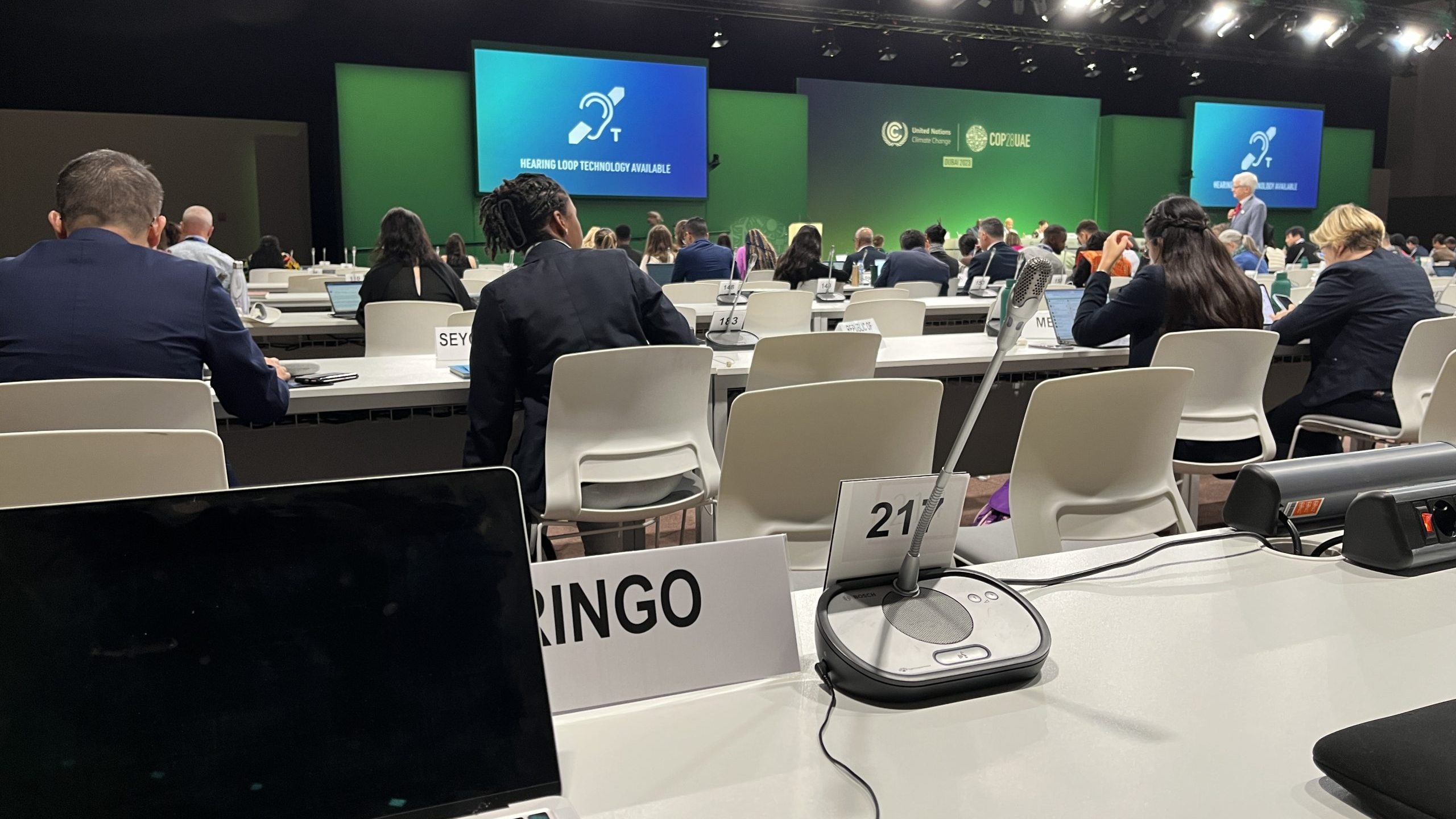
Taking Stock of Collective Progress
By Cindy Isenhour
Dec. 2, 2023
Parties agreed in Paris to “take stock” of their collective progress on the goals of the Paris agreement every five years. The process, called the global stocktake or the GST, is intended to increase ambition over time by ensuring that parties reflect on collective success and, perhaps more importantly, gaps that must be addressed in order to achieve the goals of the Paris Agreement. The outcomes of the GST are intended to send a clear signal about the urgent nature of increasing climate ambition and to inform the next round of country pledges (due in 2025 for the period of action between 2030-2035). The GST has therefore been described as the “ratchet mechanism” of the Paris Agreement, the “key to making it all happen” or more skeptically, “a global experiment in peer pressure”.
However defined, this year’s conclusion of the first GST has garnered considerable attention from negotiators and observers alike. While it has often been difficult as an observer to secure a spot in the room, it remains clear that negotiators in Dubai are hard at work trying to agree upon the outcomes and messaging of a three year process that included the collection of more than a thousand input documents and hundreds of contact hours (For more information about the GST process, see this open source infographic explainer published in Nature Climate Change).
The co-facilitators of the GST worked overnight the first day of the conference to produce a “zero draft” of the GST outcomes. Collectively negotiators spent nearly 8 hours discussing the draft text throughout the second day of the negotiations. Observations of party interventions suggest there are important areas of widespread consensus, and that there are definitely a few key sticking points that will require more prolonged and difficult discussions to reach a workable solution.
First, the good news. There is widespread consensus among parties that the Paris Agreement is working and has had some considerable successes. Parties recognize that warming projections have been revised downward due to Paris actions to date. However, parties also recognize that they have collectively fallen short of the Paris goal to limit warming to “well below” 2 degrees and have a long way to go to keep 1.5 degrees within reach (which the best available science tells us is increasingly necessary and urgent).
Despite this encouraging high-level agreement on success to date and the necessity and urgency of accelerated climate action, parties differ significantly on some of the potential outcomes and messaging from the first global stocktake. I highlight several key points here:
- There is significant disagreement along the traditional fault lines of developed and developing countries with regard to the preamble of the agreement. Developed countries favor a short version that does not make significant references to the UNFCCC convention or the Paris Agreement. Developing countries favor a more extensive preamble that recalls the foundational norms of the regime, most notably the concept of Common but Differentiated Responsibilities and Respective Capacities (CBDRRC). This concept recognizes the importance of a differentiated approach based on a country’s level of development. These parties also advocate references to Paris articles focused on the obligation of developed countries to provide financial and technical assistance to those with high levels of need and low levels of capacity to respond to climate change.
- In a related point—with regard to equity as a cross-cutting element of the global stocktake—there is significant disagreement about how to operationalize the concept. Most developed country parties frame equity in terms of a universal action to ensure that we can collectively limit warming to 1.5 degrees celsius. From their point of view, only this action can ensure that we avoid the unequal impacts of a rapidly changing climate and its worst consequences. Most developing countries speak about equity in terms of the need for poverty alleviation and sustainable development. From their perspective equity requires that developing nations are allocated a fair share of the remaining carbon budget in the interest of sustainable development. This would require developed countries to reduce their emissions faster than those still in need of development.
- This leads me to one of the more interesting and contentious discussions of the global stocktake. Many parties (both developed and developing) advocate including specific energy sector targets and collective commitments to “phase out” or “phase down” fossil fuel use, and/or to eliminate fossil fuel subsidies— in the interest of keeping the 1.5 degrees of warming within reach (which the IPCC tells us is increasingly urgent). Other nations, including several rapidly developing oil producing nations, note that the Paris Agreement does not give a mandate to the GST to make policy prescriptions. They argue that there are many pathways to carbon neutrality and advocate for national sovereignty in developing their nationally determined contributions (NDCs). These countries (and many developing nation negotiating blocs) argue that affluent nations who developed with the assistance of cheap fossil fuels have an obligation to peak their emissions (and fossil fuel use) sooner than developing nations— given their historical contributions to current temperature gain and to ensure that a fair share of the remaining carbon budget is available for countries in need of sustainable development. Without these reservations and the right to development, developing countries argue that global inequalities linked to colonial extraction and a history of exploitation might be permanently locked into the global economic system.
There are certainly more sticking points and I’ll provide updates on the status of the GST outcomes as negotiations continue through the weekend.

